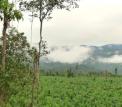- Home
- About
- Campaigns
- Regions
- Themes
- Agrofuels
- Climate justice
- Coastal communities and fisheries
- Disasters
- Economy & debt
- Energy
- Foreign investment
- Forests & forest fires
- Human rights
- Indigenous Peoples
- International Financial Institutions
- Land and food security
- Laws & regulations
- Mining, oil & gas
- Plantations
- Politics & democracy
- REDD
- Regional autonomy
- Transmigration
- Water and dams
- Women
- Publications
- Links
- Contact
Campaign
- Climate Justice and sustainable livelihoods (35)
- MIFEE (7)
- Agrofuels and oil palm plantations (17)
- Coal (5)
- BP - Tangguh (14)
Region
- Indonesia (163)
- Sumatra (65)
- Java, Madura & Bali (14)
- NTT & NTB (13)
- Kalimantan (81)
- Sulawesi (32)
- Maluku (6)
- Papua (86)
- Europe/UK (50)
- International (85)
Newsletter articles

DTE publications






